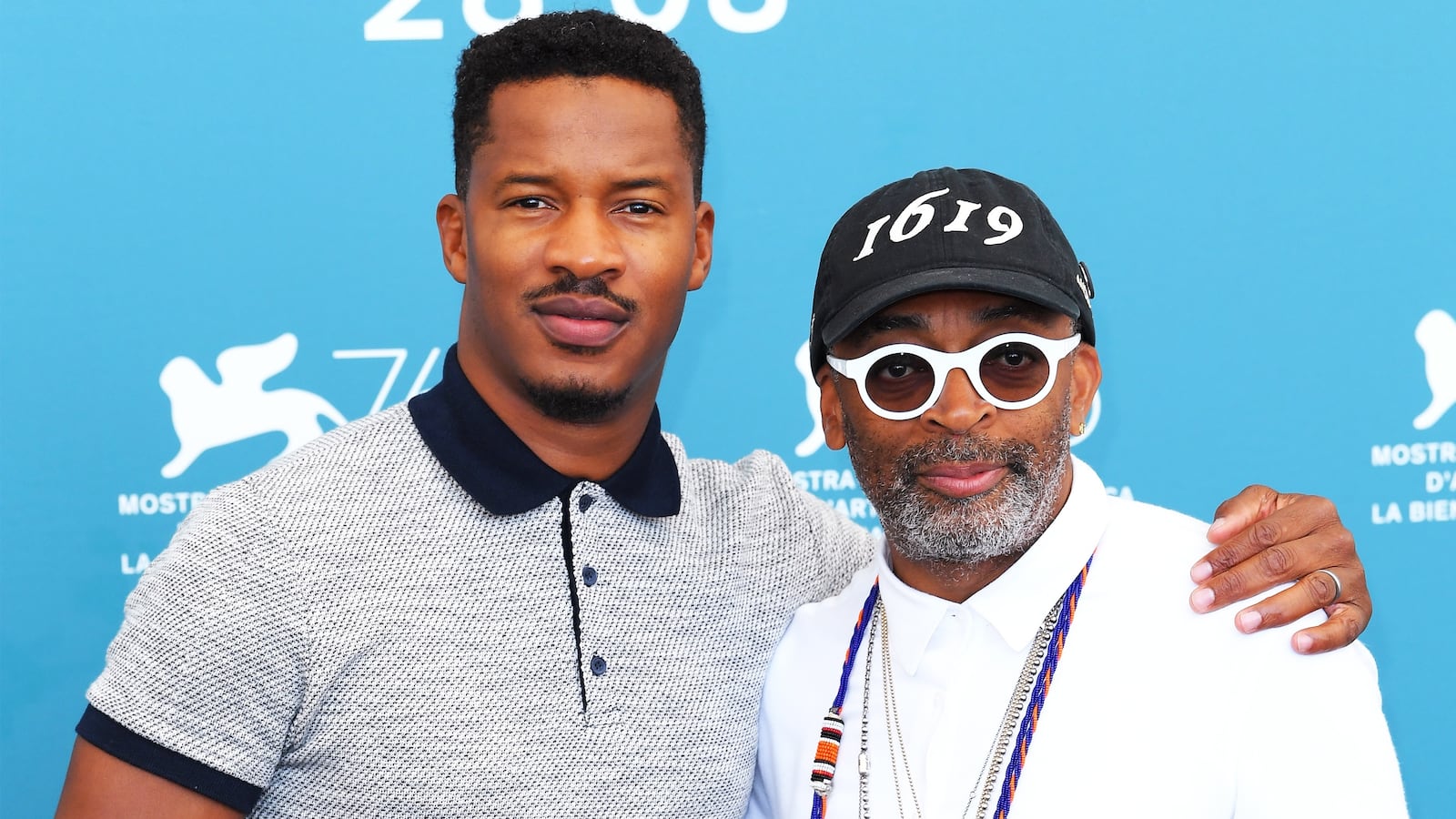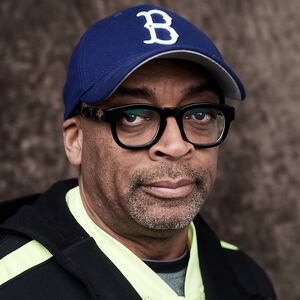VENICE, Italy—In January of 2016, The Birth of Nation was the talk of the Sundance Film Festival. The lyrical film, chronicling Nat Turner’s slave rebellion, had landed at just the right time—in the midst of #OscarsSoWhite, a controversy stemming from the fact that all 20 acting nominees at the Academy Awards that year were white. After a heated bidding war, it was acquired by Fox Searchlight for $17.5 million, making it the priciest acquisition in Sundance history, and looked poised for an awards run.
Then, in the months prior to its release, writer/director/producer/star Nate Parker’s past rape allegation resurfaced.
In 1999, while a student on a wrestling scholarship at Penn State University, Parker and his best friend, Jean Celestin—a co-writer on The Birth of a Nation—were accused of raping a young white woman on campus, as well as subsequently launching a harassment campaign against her that ultimately forced her to switch schools. A jury acquitted Parker, but Celestin was found guilty and sentenced to six months to a year in jail. When the judge deemed that sentence “too lenient,” Celestin was sentenced to an additional two to four years behind bars—upon being granted a second trial, however, prosecutors declined to retry the case, and he was set free.
Parker and Celestin’s accuser wasn’t so lucky. She dropped out of school, and her mental health gradually deteriorated until, in April 2012, she took her own life.
During the press tour for The Birth of a Nation, Parker was criticized for a perceived coldness and lack of remorse concerning the woman and her allegation—so much so that the producers of the film had to hire several firms to give him media training—and the film took in just under $16 million at the box office while receiving no major awards attention.
Three years later, Parker is back with his sophomore feature American Skin, which debuts Sept. 1 at the Venice Film Festival. The film, written, directed by, and starring Parker, centers on Lincoln Jefferson (Parker), a Marine veteran who, after his 14-year-old son is executed by a white police officer during a traffic stop, and after no charges are filed against the cop, holds the entire precinct hostage in his quest for justice.
American Skin—which currently lacks a U.S. distributor—was a late addition to the festival lineup, and on Sunday afternoon, a last-minute press conference was held for the film featuring Parker, producers Mark Burg and Tarak Ben Ammar, and Spike Lee, who is given a “presented by” credit on the project.
At the presser, Parker—whose facility with the media has clearly improved since 2016, with the actor bursting into tears on several seemingly-at-random occasions—immediately addressed the controversy surrounding the rape allegation and his response.
“I’ve learned a lot in the last three years. It’s been a journey of wisdom—talking to people who are important to me, asking their advice, getting their support and learning more about myself, being introspective about the last three years, and I’ve learned a lot,” said Parker. “Standing here at 39, the reality is I was quite tone-deaf to a lot of the things around in the climate, and my response during that time obviously hurt a lot of people, and frustrated and angered a lot of people, and I apologize to them. I’m still learning, and growing, and still feeling the need to make films that I think speak to things that need to change in our country, and the world.”

Nate Parker on the set of American Skin
Venice Film Festival“I’d like to piggyback on my brother Nate,” chimed in Spike Lee. “I know it was troubled times—we had not spoken in a while—and Nate called me up, he said, ‘Spike I’ve got a film, I want to show it to you, I’ll come to New York’…So Nate came to New York and screened it for me, and this film affected me…there hasn’t been a film that’s affected me this deeply in a while. And I said, ‘Nate, if I could help you, tell me what to do.’ And Nate and I also had a private conversation because I had to see where his head was too, because it was no joke what he had to go through. It was a man-to-man, a black man-a black man, brother-to-brother, friend-to-friend talk. There’s an expression, it was ‘100,’ meaning legit. All the way ‘100.’ And I said, let’s go. I’m in.”
I’d spoken to Lee about the Parker controversy in 2017, and he communicated how he believed there was a double standard in the way Parker and Casey Affleck, who settled a pair of sexual-harassment suits, were treated—with The Birth of Nation being shut out of the Oscars, and Affleck winning the Best Actor Oscar. “[Casey Affleck] settled several times. I don’t know the exact details of it. One day, someone’s going to write a book about that whole thing, because I’ve never seen someone fall so quick,” said Lee. He also accused the media of “shenanigans” in pursuing the Parker story, and insinuated that a rival producer tipped off the press to the case in order to knock it out of the Oscar race.
When I asked Lee in Venice about why he decided to go to bat for Parker and put his name on American Skin, and also how he felt Parker was treated, he seemed a bit more diplomatic. “For me, it’s move forward. Nate is in here, he’s not hiding, he’s answered all questions, and we’ve got to move forward. That’s how I feel. It’s fruitless for me to say, this happened to Nate and this happened to other people. Can’t do that. This is only Nate’s second feature film. He has a lot more in him. That’s why I’m here.”







